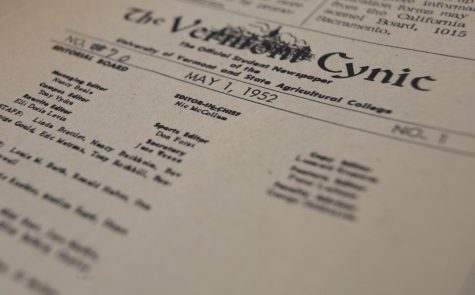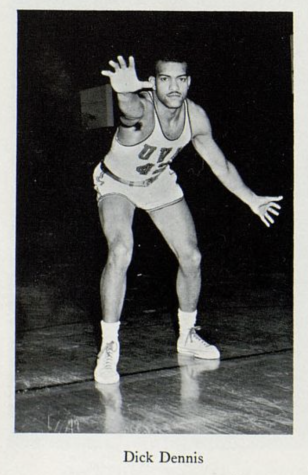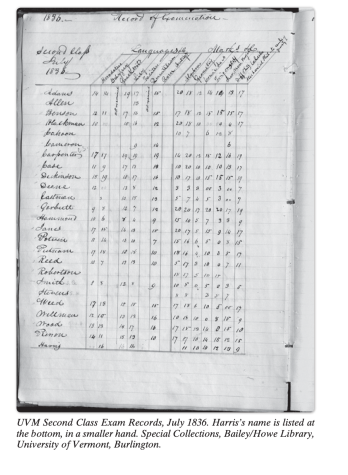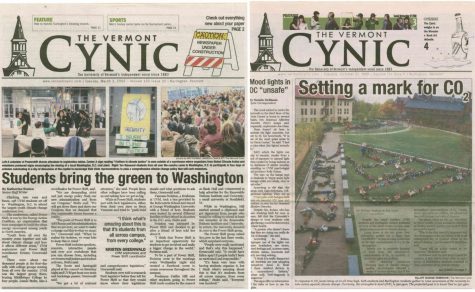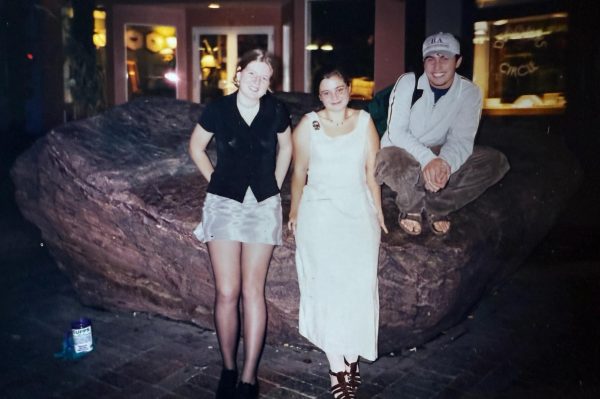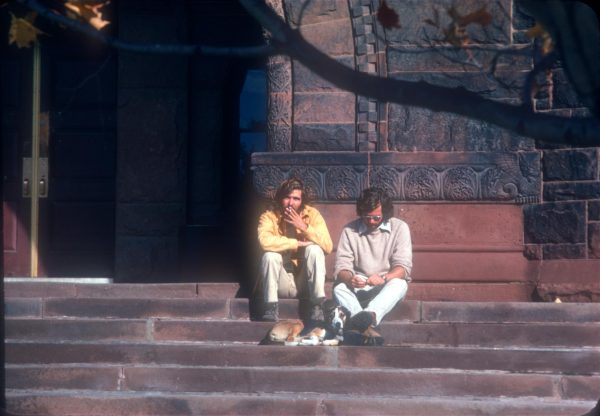John Brown’s Body: So Good You Should Travel To See Them
When I arrived at Higher Ground on Friday, November 21st, to interview John Brown’s Body, I had the same pre-conceived notion as many other people and critics – Here is the white reggae band. I sat down to talk with Chris (trumpet) and Tom (drums) of John Brown’s Body, and was not only swayed, but also moved. Rock, roots, reggae, life, music, and politics all rolled into one. John Brown’s Body has some of the purest intentions in music today.
Cynic: What do you guys think of mainstream reggae, like Sean Paul, that doesn’t seem to hold true to roots, rock, and reggae? Do you feel like they exploit it?
Tom: I don’t really see that myself. I just think that they are raised in a different time, a different climate, and they are expressing their culture in a different way. It’s more updated, and a lot more urban sounding rather than the country kind of feel of earlier reggae. We know some of the players in the other bands like Burning Spear also play in Lauryn Hill’s band. And the Marleys are also real in touch with the New York and Miami “scene” I wouldn’t put a Sean Paul album on in my house, but I like it, and I’m glad it’s there.
Cynic: What do you guys think you have to offer the reggae scene and community? What’s your spin on reggae music?
Chris: Just keeping it real you know, and that’s one thing that I get that’s most complimentary of what we do. People are always like man – It’s one thing to watch a band do Stir it Up, or Three Little Birds, or just like not progress, and not move. And none of us wanna do that, we don’t want to get stuck and play someone else’s music in essence. Because when you make new music you incorporate a whole different culture into it, you touch kids like yourself, and other people – not just Jamaican, and not just black necessarily – but [people who] are just there to appreciate the music and understand the message for what it is purely without color or without any other of those elements, just pure, the vibe of it – Which is peaceful, respectful, that part of it.
Cynic: What does John Brown’s Body mean?
Chris: It’s named after John Brown the abolitionist who historically was the first person to violently speak out against slavery. Before he did, it was all just talked about, and his vibe was to just get to the people and in that sense he was always a major hero of mine growing up. I grew up in the South, and we were taught a lot about John Brown, and I had a black history teacher, and she made sure that we knew. People were just kind of afraid to speak against it, because you’re speaking out against the established government, and you’re speaking out against big private business, which was the South. If you put it in today’s context, it’s just like the matrix almost, and you have this big establishment, and for you to speak out, and you’re directly challenging it, and you’re going to get sopped if you do anything, and he did something. And he was hung by the United States government for treason, but in 1859, less than a year later, the Civil War started and that same union that hung him is now fighting this war, blowing everything up. The irony of it is just amazing on top of everything else. And in that sense, body, a body of people, not like someone’s dead body. We are all white dudes that play an African based music that’s about an African struggle in essence. So not like saying we are abolitionists, or that we’re liberating – We are not doing that at all. It’s just, when I grew up, I grew up blue collar, and I went through my own trials and tribulations, and just like Bob Marley said, “Every man thinks his burden is the heaviest” and I just felt a kinship with reggae music; I just felt there was a lot there.
Because if you study how reggae music was created, it was influenced by everything & hellip. It was Jamaicans that had rock and roll kind of instruments from England – These Fender guitars, and basses, and drum sets. Yet they’re playing this heartbeat Nyabinguei rhythm which is from Africa, but they’re hearing these Motown Detroit harmonies coming from Miami radio stations – those three part harmonies and the horns. I mean you look at Bob Marley in an interview and you asked him what 50’s music was and he was like, “Ja-na-na ja-na-na,” meeting the, “Ca-chinga Ca-chinga,” and the Jamaicans are just catching these static air waves of Miami radio shows of jazz and satellites, and Motown, all the s*** that our parents listened too. And when I got into reggae was like at the same time that I got into my dad got listening to Beatles. And I just saw this linkage that even though I am a white kid, with totally white parents from a completely white existence, and I definitely have relatives that are good old boys and all of that bulls***; growing up I saw plainly, because I knew of all of these musics, the essence of just good human nature, which isn’t about color, it’s about growing. Because you have just as much to teach me as I have you, and even if we learn nothing from each other, if we just respect each other and co-exist, some good s*** is gonna happen, and it’s gonna be different than what we’re used to.
Cynic: So do critics ever give you a hard time about you guys being white people playing reggae?
Chris: Yeah dude, that’s the biggest thing; everywhere we go, “It’s the white reggae band, who are these guys?” If anybody hears the music, then 9 times out 10 they give it up. It’s just what my job is, playing, living, breathing, and studying reggae music. Just traveling this whole country up and down. Usually there are two kinds of reactions, not to break it up. But there is the white kind, which is, “Ooh, who are these guys playing this kind of music” and they are usually into it. Or it’s a heavy West Indian vibe which is like, “What the hell are these guys doing on the stage” if it’s like a reggae fest. I have time and time again seen those frowns turn to smiles within the first four beats of the music because people feel that we genuinely feel this music. We are not trying to be a jammy jazz band playing a reggae song, and by doing that it’s just showing respect. Cause it’s like saying, “We’re gonna play by your rules,” and then after we do that we can add the little things, and work it.
Cynic: How has your sound progressed, and what are your feelings on keeping things traditional?
Chris: Very nicely. Look at tracks like “Words of the Profit,” compared to “33 RPM’s,” it’s still the same band and it’s still totally the same dudes but the sound has become more ours. And you should always preserve, and I respect the guys that are in symphonies and play Mozart music that’s 200 years old, and it’s very admirable. But if our culture was just made up of that we’d be screwed. There’s two different kinds of musicians and that’s the thing that makes music so beautiful. It’s like carpentry; you have the guys that build the houses just like their grandpa’s taught them, and they do everything that way. And there are the guys that are finagling with electronics and using laser beam levels, and you’re either gonna be on one side of the river or the other. I find the best guys that understand the old and come from that, and then push and change it and make it their own. Cause that’s what the old guys that invented the s*** did originally. That’s the progression of humanness.
Because I’m a live musician I am not always a fan of two turn tables and a microphone. I wanna see that get back to the essence of live music, cause that will push the MC’s. And I’ll take this a step further. I was an education major in college, and there was a big crisis with the arts dying, and the football teams always have way more money than the bands. And a lot of the time music programs are cut in general due to science and math, because we want engineers, because they build bombs, they make bank accounts. And I ask, what is the one reason that would make the arts decline? And it’s because it’s becoming stale, because there is nothing new, and there is no way of keeping horns players and choir singers in the mix. You have this one R&B cat with a completely synthesized track. Nobody but that one singer and producer get the all the money and it definitely spills down. When Puff Daddy takes all of the f****** money for doing one track, that in some weird ripple effect – and I know I’m not crazy – it affects everything. The only way to bring the music back around is to have money focused on it. When is a sports team looked at like it’s the bomb? When they’re winning all of the trophies and they have the endorsements. It’s gotta be the same with music, and we’re gonna die out unless we have the money, and unfortunately that’s the reality of it.
Cynic: One question I like to ask people in the scene is if they’d be willing to be on MTV. So how do you feel about it; how would you feel about being mainstream?
Chris: I see it as a useful tool. When I get over the initial reaction of wanting to throw the TV out of the window, I get amped off the fact of what could I do. I look at things like Making the Band, and it wasn’t even band people, but that’s a great idea, look under rocks and find these kids, because there are very talented people everywhere. I feel, and maybe I’m deadly wrong and it will be the end of me, if you put the right ingredients in that you would have a good lasagna. You’d find some heavy talented young kids that would have a lot to offer art in the world.


